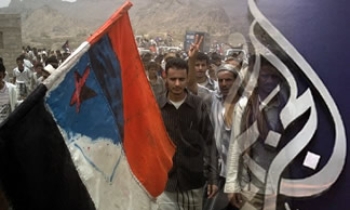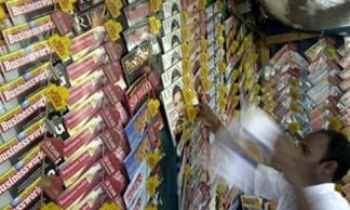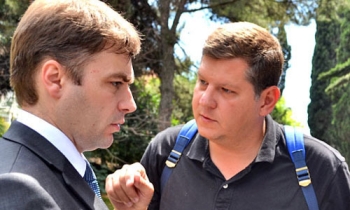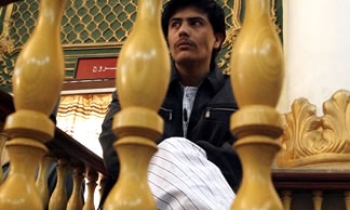Blogger Michael Yon spent 10 months embedded with the military in Iraq looking for success stories, becoming the poster boy for those who say the mainstream media are not reporting good news from the war-torn country.
But ask the Winter Haven native about criticism from President Bush, Vice President Dick Cheney and others that mainstream news reporters are missing the real story of achievement in Iraq, and he strikes a more conciliatory tone.
"The only journalists I think are doing a bad job are people who go in for a few weeks or a month – the short term embeds trying to write an exposé of Iraq," said Yon, who left Iraq in September and hopes to return soon.
"When you really start to see the big picture, though there are places in Iraq that are not on fire, the places that are, are really on fire," added the blogger, whose work appears at michaelyon-online.com. "No one wants to be the first to say what is obviously true that Iraq is already in a civil war."
As the dust clears from days of hand-wringing over the question of "good news" reporting from Iraq, even bloggers such as Yon must ask themselves: When the bad news is so extremely bad, how can less negative reports strike a balance?
"The kind of progress that we and the Iraqi people are making in places like Tal Afar is not easy to capture in a short clip on the evening news," said President Bush on March 20. "Footage of children playing, or shops opening, and people resuming their normal lives will never be as dramatic as the footage of an IED explosion, or the destruction of a mosque, or soldiers and civilians being killed or injured."
But a look at coverage by the TV networks ABC, CBS and NBC on March 21, along with newspapers the New York Times, the Washington Post and USA Today, revealed the kind of blockbuster stories that practically define breaking news.
Insurgents attack a prison, killing 19 Iraqi policemen and freeing at least 30 inmates. A total of 51 people killed in various attacks around Iraq. A military dog handler at Abu Ghraib found guilty of abusing inmates.
The military opens an investigation into charges U.S. soldiers killed 11 members of an Iraqi family during a raid.
Even stories that might be considered good news – an ABC News piece about servicemen fighting to return to active duty after losing limbs in battle – carried a tinge of despair.
"The administration is in a bubble sitting in the green zone surrounded by barricades and barriers," said Loren Jenkins, senior foreign editor at National Public Radio, who won a Pulitzer Prize in 1983 for his reporting from Lebanon for the Washington Post. "You can say, 'In this village we built a clinic.' But where is that village? Is it where most of the people live? In Baghdad, where most of the people live reporters see nothing but chaos."
That's why Joe Katzman used to work with other bloggers through his Winds of Change site to circulate dispatches with news he felt mainstream outlets didn't report.
Before the collective effort broke down – Katzman said it took too much time to assemble the dispatches – they passed along news of success in bringing sewers and clean water to Sadr City, growth of the Iraqi economy and the U.S. Agency for International Development giving small and medium-sized businesses in Iraq access to credit.
Some of the stories cited by Katzman were covered by mainstream media – the Washington Post and Christian Science Monitor wrote on Sadr City and the Los Angeles Times noted Iraq's gross domestic product grew by $9-billion from 2002 to 2005. But such coverage was often leavened with cautionary notes about the violence and impact of insurgency.
"The media, especially the print media, have to decide whether they're Entertainment Tonight or they're about figuring out what's going on and informing people," said Katzman, a native of Toronto who works as a business and technology consultant. "If a part of Iraq is significantly better than it was a year ago, you need to tell that story."
The demand for news outside the daily violence in Iraq has led the Associated Press to try other coverage options, including embedding a reporter with the U.S. Army Corps of Engineers to see reconstruction efforts.
Laura Myers, AP's international editor, said the reporter with the Corps of Engineers found electricity output is at its lowest point in three years – in part, due to insurgent attacks and partially because Iraqis are buying more appliances.
"You can't not report the violence, but you can try to reach out and do more stories about the Iraqi people and U.S. military," Myers said. "And we find when we do something special; it gets on more (newspaper) front pages."
In a column for American Journalism Review, a former press attaché to the U.S. Embassy in Baghdad noted the many challenges facing journalists in Iraq: violence; limited knowledge of the language; limited ability to speak with citizens for fear of kidnapping or attack; lack of reliable statistics or information; and the paradox of bringing danger to areas simply by reporting on them.
"For example, we stopped taking reporters to the inaugurations of many reconstruction projects because, as we quickly learned to our dismay, publicity might invite a terrorist attack," wrote Robert J. Callahan. "On several occasions, one involving a school, terrorists struck the site and killed innocent people the day after an article or television story appeared. We concluded that good publicity simply wasn't worth the cost in lives and damage, and we stopped advertising them. It was frustrating, to be sure, but prudent."
Traveling the country to promote her book, "Tell Them I Didn't Cry: A Young Journalist's Story of Joy, Loss and Survival in Iraq," reporter Jackie Spinner of the Washington Post noted a high degree of skepticism from some people who are convinced journalists are not capturing the full story, though she remains sure reporters communicate "80 to 90 percent" of the story there.
"If the borough of Manhattan was peaceful, but there was a car bomb in Brooklyn every day, it's tough to talk about the tranquility," said Spinner, whose book title recalls her reaction after escaping a kidnap attempt at Abu Ghraib.
"I sympathize with soldiers who are frustrated that we don't spend enough time talking about reconstruction or their interaction with local people," she said, recounting her own work interviewing soldiers and writing on reconstruction. "But the view from the foxhole is that you only see your surrounding area. The journalist's goal is to pull together all those views from all those foxholes and provide a perspective on the war."
Others say news outlets haven't communicated the full extent of the violence, from the intensity of fighting soldiers face to incidents where Iraqi teachers have been beheaded in front of their students.
"The administration, which has an agenda, looks at the half-full cup and says, 'We built a power plant in Kurdistan,'"said NPR's Jenkins. "Kurdistan is fine. There's been very little chaos or violence there. But that's not where the story is."









